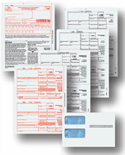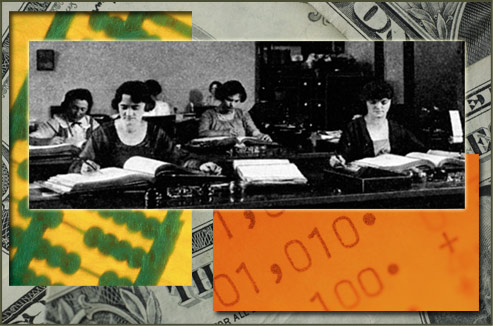Why Is Proper Bookkeeping So Important?
Saturday, November 12th, 2016What is proper bookkeeping? It is the process of recording all the financial transactions and events that occur in your business. Transactions are meticulously recorded so that all the money that flows in and out of your business is properly accounted for. Bookkeeping is one of the most essential tasks of any business.
Many people believe if they have money in the bank to cover their bills each month, it is an indicator they are doing well-enough. However, it is not the bank balance that tells you the viability of your business. Careful record-keeping may seem over the top, but it is critical to the health and success of a business. Without proper bookkeeping, your business could quickly and easily crash, before you realize what happened.
Many small business owners often do their bookkeeping on their own or have their assistant take care of it, but investing in the right bookkeeper will save them not just precious time but avoid the probability of making very costly financial mistakes.
Records from bookkeeping are important for:
- Reporting accurate tax returns and neither overpaying or underpaying taxes, keeping the IRS at bay.
- Seeing how much money you are really making vs. how much money you have lost (your true profit or loss)\
- Allowing you to see whether your earnings are enough to cover your expenses
- Assisting with daily business management
- Knowing what you own, what you owe, and who owes you and how much
- Giving you information to guide your financial decisions
- Providing your bank financial data for a loan, to prove to them your business is viable.
- Drafting financial statements and other important financial reports
- Analyzing the financial state of your business
- Ascertaining whether you are meeting your financial goals.
If your records are inaccurate or incomplete, the above information will be useless at best or worse, misleading.
Proper bookkeeping arms you in making all your financial decisions with clarity and perspective. It is the foundation for effective and efficient business sustainability and growth. Avoiding proper bookkeeping can and will eventually end up in unpleasant financial consequences.
To help you find a qualified bookkeeper, go to www.howtohiretherightbookkeeper.com.
Make one of the best decisions for yourself and your business and invest in an outside expert to review your books on a regular basis.
Need someone to review your accounting records or train you in proper bookkeeping practices? Call Victoria today (310) 370-1254.

